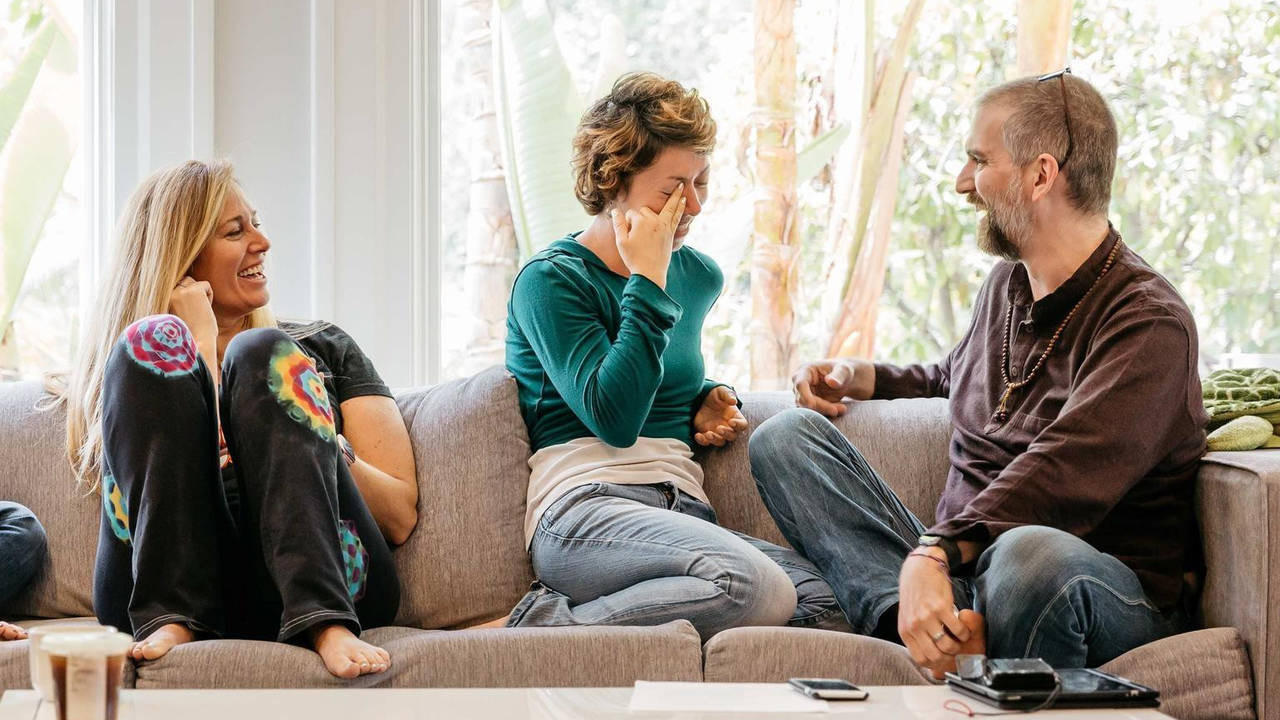What does “Authentic” mean?
Sep 04, 2020
by Sara Ness
“It isn’t normal to know what we want. It is a rare and difficult psychological achievement.” — Abraham Harold Maslow
What does authentic mean?
Is authenticity total honesty in all your words and actions? Is it following your impulses, your emotions, or your beliefs? Is it integrity? Is it a popular word that writers use to get more hits on Google?
I’ve spent the past seven years teaching authentic connection. I’ve worked with thousands of students across multiple countries, and one constant issue participants run into is “finding their authentic truth.”
What Does Authentic Mean, And Why Is It So Hard To Find?
So really, what does authentic mean? Why does it seem so difficult to find “true authenticity”?
Imagine a city.
It’s huge, sprawling, filled with alleyways and shops that you could never explore in a year of looking. The city has many entrances. It belongs to you, and you have spent many years exploring it. The city changes often, and as soon as you learn one part, others have already changed.
Visitors often come to your city. You invite them into the closest house, and you show them around. Some you only show the public spaces. Others you let deeper inside; a few you even let explore the city with you.
People ask you about the city in which you live. You’re not sure what to say. What part of the city do you tell them about? How can they expect you to sum up your authenti-city in just a few words?
In the Western world, we believe that we each have a singular self. This self defines our actions and expresses our truth. But even if I have one self, that self is a city, so large and complex that even living in it does not guarantee I know it well.
I like looking at the self as made up of many parts. Each part has its own feelings, thoughts, values, and identity. Whenever I feel “conflicted”, that’s two parts both trying loudly to be heard.
Authenticity is not a demand to be met. It is a territory to explore. I see it as the ongoing product of awareness, acceptance, and choice.
Awareness
Awareness is seeing the multiple parts of who I am.
Right now, I have a selfish part that wants this article to go viral and raise my name in the world. I also have a generous part that wants to offer value, whether or not it gets me seen.
Awareness looks at what’s happening now, but it also looks a level deeper: what need, value, belief, or identity are those parts standing for?
Just as zooming out on a camera allows me to see more of the whole picture, zooming out on myself incorporates more truth into my view. Rather than seeing one house, I can now see an entire block of my city, although I may miss some detail within.
For example, selfishness and recognition are important because they fulfill my need for safety and belonging. I offer value, so I have a place in the world. Generosity is important because I want to believe that others will help me too, and because I have an identity as a “good person” that is printed on every city block and would be awkward to erase.
Acceptance
The next step is acceptance. I may not like my selfish thoughts, but they are part of me, and they’re important. If I don’t have a place in the world, which selfishness tries to protect, I’m likely to die in the wild. I live in America; we don’t have socialized healthcare.
The more I push my needs away, the more they will demand attention. They’re trying to protect me from harm. It’s their job to make sure I listen. What I resist, persists, and insists to be seen.
Choice
Awareness tells me that I have many selves. So, when it comes to being authentic, how do I choose among them?
Which Is My “Most Authentic Self”?
Here’s the bad news.
I don’t believe that any of these selves are your “most authentic self”.
They’re all true. No part of your city is “more authentic” than another. However, you are the one that gets to choose which self to show. You get to draw your map.
Some people choose based on their emotions: what they feel like showing in the moment. But emotions change, so people may accuse you of “being inauthentic” when you shift your behavior.
A more solid basis of choice might be your values: what you want to express and see expressed in the world. If you’re feeling angry, is your value on self-expression higher than your value on safety? Or is safety more important than expression? Knowing what you stand for can let others know what to expect from you, and help them bring out their own authentic truth.
In Summary:
Authentic awareness is seeing more of what’s already here.
Authentic acceptance is letting what’s here exist without shame.
Authentic expression is naming what you see, and choosing which parts of self to express based on who you want to be.
Enjoy the exploration.
And, since I only have a part of the truth in my own authenticity, please tell me - what does authentic mean to you?
Lorem ipsum dolor sit amet, consectetur adipiscing elit. Cras sed sapien quam. Sed dapibus est id enim facilisis, at posuere turpis adipiscing. Quisque sit amet dui dui.
Stay connected with news and updates!
Join our mailing list to receive the latest news and updates from our team.
Don't worry, your information will not be shared.
We hate SPAM. We will never sell your information, for any reason.


